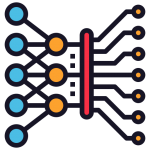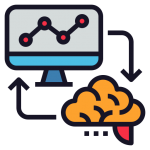Order to Cash


Oracle Order to Cash Optimisation
How can Chief Financial Officers, Finance Managers and Finance Teams improve key financial performance in areas such as Order to Cash?
The Questions
What are some of the difficult questions Finance leaders need to ask in relation to the Order to Cash (O2C) processes and where should they focus their attention for further investment?
Typical questions that need answering:
- How long does the Order to Cash process take?
- How can we capture the cash transaction faster?
- Who and what is involved?
- How much is the Order 2 Cash Process Costing?
- What KPI’s and metrics should we be measuring the Order to Cash process against?
- Where are the process friction area’s, sticking points and slowdowns?
- How many process flows are obsolete and serve no purpose?
- If the process was remodelled what would it mean to the bottom line, costs or cash flow?
- What would be the other benefits of a streamlined Order to Cash process?
Order to Cash Issues
As with any process, the standard install, the Order to Cash flow is structured so that many organisations and operations can use the process in a standard already defined format.
However, as with many start points and positions, over time organisations identify areas of the process that do not meet the requirements of the business and therefore lead to tweaks or customisations (In Oracle speak = Configuration, Extension, Modification, Localization, and Integration Framework = CEMLI’s).
Non Standard Changes
Many of these changes build up and either create internal friction or are replaced by new different CEMLI’s that obscure good practices and promote bad O2C practices. Documentation tends not to be completed or part completed adding to further complications when attempting to understand the process from start to finish and support best practice.
This is all too apparent in larger ERP legacy applications with specific functions such as Order to Cash (O2C). Many Chief Financial Officers (CFO) and Finance Teams are unaware of the actual process that is being followed, how much it costs, how long it takes from start to finish and where can the O2C can be tuned or optimised.
Oracle Order to Cash Overview
The Oracle Order to Cash (O2C) process starts with a customer raising an order, starting a defined process for entering the customer order into the application (Sales Order), prompting the delivery of the good(s) (Shipping), and then producing a sales order invoice for the good(s) and cash/money paying for the goods delivered. This process is critical to the effective financial and operational viability of the organisations sales and income process.
With the addition of CEMLI’s, process dependencies can be created between products and functions. These need to be fully understood, reviewed and managed to retain best practice and maintain efficiencies within the O2C process. The O2C application goal is to provide an overall framework and provide assistance with Setup, Processing, Management and Troubleshooting to deliver the end to end, Order to Cash Business Process.
Whilst this is easily achievable in a new, low or no CEMLI environments, many Oracle ERP installations have been in operation for decades and with many CEMLI’s implemented. This compounds the application efficiency, productivity and compliance creating Process debt and reduces operational value.
Process Debt
Whilst the original standard flow and setup path is generic, to begin with, complexities arise when CEMLIS’ are introduced and these are compounded over time as new workarounds over-write the previous operating process model.
This reduces systems resource availability, resulting in the organisation losing sight of best practices and fully understanding key performance indicators (KPI) such as the shortest path to realising faster payments.
Process debt reduces operational effectiveness, increases waste, inefficiency and delivers poor user and customer service.
What is Process Mining?
Process mining is a new concept that uses data mining tools and systems usage data to create a defined model of the internal Order to Cash Process that helps identify process debt.
By fully understanding the process flow throughout the whole Order to Cash process, accurate assessments and process data modelling can show:
- Where inefficient processes and non-value tasks lie within the O2C process
- What changes can be made and how these effect the up-stream and down-stream tasks
- Visually identify where O2C process friction and slowdowns exist
- Model changes and see the effects created. If positive, make changes to the process
- Quantify the costs across the whole process and estimate savings before changing
- Make quantifiable assessments using factual data before & after changes are made
What is Process Tuning?
Once process mining has been undertaken the output of the exercise typically delivers a list of process streams that have been measured against key-metrics within the Order to Cash processing environment.
These can include timings from start to finish, velocity, volume, errors, workarounds and user involvement, costs etc. Once identified the streams are graded and reviewed to identify those that are most suitable for tuning (Tactical change) up to longer-term fixes (Strategic change).
Visually the thickness of the lines denotes volume transactions and highlights where issues arise such as friction or workarounds. Everything can be tracked using the Unique ID and qualified with timings and function that shows the complete O2C process.
Once identified and captured the data can be used to create a ‘living’ process model and changes can be applied to test theories, identify low hanging fruit for quick changes and adapt processes to remove waste and bring the smiles back to the users faces.
The process streams can be tuned by removing workarounds, reconfiguring CEMLI’s, deleting unused processes or merging and combining CEMLI’s that perform the same or similar functions.
As another benefit, part of the processes that are ripe for automation are easily identified, leading to further improvements in functionality and cost savings using Robotic Process Automation and Functional Automation. In certain circumstances, the process can be automated completely, removing the need for any or very limited user involvement and this can significantly improve processing throughput, service velocity and workforce productivity.
Summary
Order to Cash is a central finance work stream and process that delivers great value to the host organisation. However, when it has been in place for a significant amount of time the efficiency of the process declines and leads to process debt that increases cost and reduce value over time.
By using Process Mining, Process Tuning and Automation organisations can reduce the debt and increase value by fully understanding what function processes and process streams are making to the corporate and operational finances and allows the Finance executive and management to better control their process spend whilst accelerating the income.
For further information on ONQU Process Tuning Services please contact Jim Brown at hello@onquautomation.com or visit www.onquautomation.com
About ONQU Automation
ONQU Automation is a specialist delivery partner for UiPath Robotic Process Automation (RPA), Process Mining and ABBYY Intelligent Document Solutions.
Operating from a Head Office in Birmingham (UK) and with bases in London (UK) for automation and Kerala (India) for managed RPA, Oracle services and support, ONQU delivers a wide range of discovery, consultancy and support services for whatever stage of the automation or support journey organisations are on.

Accurate Process Mapping
Traditional process capture and mapping relied on manual task, out dated documentation and subjective data.
Process mining uses accurate systems data.

Make Fact Based Decisions
Data is king and accurate data turns business decision making from an art form to a measurable, accurate and positive value driven exercise . Let your managers and executives decide with facts.

Increase Process Efficiency
Significantly ibcrease the effeciency of your processes and internal work functions. Process Mining will help you deliver value faster through process excellence.

Real Life Process View
Once the systems data has been captured an interrogated a real world, real life functional map can be created and reviewed.
A working model shows where there is process friction, lack of productivity and compliance.

Improve Worker Interaction
With data mining you can identify where your workers can spend the most productive time and where they don’t need to get involved. Free them from the drudgery of data tasks.

Cloud or Onsite
As with any modern technology your business can operate process mining in the cloud or within your own datacentre. This allows to manage resoruces more effectively so you can start smll and scale with success.

Significant Time Saving
Process Mining delivers a full understanding and comprehensive ovewrview of the prcesses that exist within your organisation. No longer do process reviews take months of interviews and long documentation reviews.

Improve Customer Service
Free your customer services team from undertaking processes that don’t require human attention or interaction. Remove processes that don’t add customer value.

Create Value
As with any investment the proposed outcome must be measured, monitored and compared. Because a process can be isolated then modelled chnages to the process or when automated can demostratre accuratley how much value has been achieved.

Contact Us
0121 803 8808
3 Gatsby Court, 172 Holiday Street, Birmingham
Business – Monday-Friday: 8am – 6pm
Get Started
For a Process Mining Demonstration and discussion please click here

